Following their triumph in the Polish qualifiers for the Wacken Metal Battle and their performance at Wacken Open Air, I had the opportunity to speak with members of the band Deadline. Sebastian Sojka and Michał Stemplowski (Stempel) discuss the behind-the-scenes aspects of the competition, surprises at the festival, the creation of their latest album, and why wellies can be just as essential as a guitar.
What made you decide to take part in Wacken Metal Battle Poland?
Sebastian:
We had made a resolution not to apply for any more contests. But… well – Wacken Open Air is Wacken, after all. The prestige of that festival made us make an exception.
What did the preparations look like after the results were announced? What were your biggest concerns?
Stempel:
First of all, I can’t say we were mentally prepared — we were definitely surprised by the result. Being at the Wacken Metal Battle Poland final in Warsaw, we saw many excellent bands give it their all on stage. Honestly, just before the results were announced, I was convinced that My Own Abyss would win and that we’d be heading straight home. Then Titus announced us as the winners — I was completely shocked. Our second guitarist, Paweł (Paweł Sędziak), was probably the most surprised of all, as he wasn’t even there when the results were announced (laughs).
Seba:
I, on the other hand, had a feeling we had a shot. We played a very good show in Warsaw. Still, the different styles presented by other bands kept me guessing — it all depends on taste, so anything could’ve happened. In the end, the jury chose us, which made me really happy.
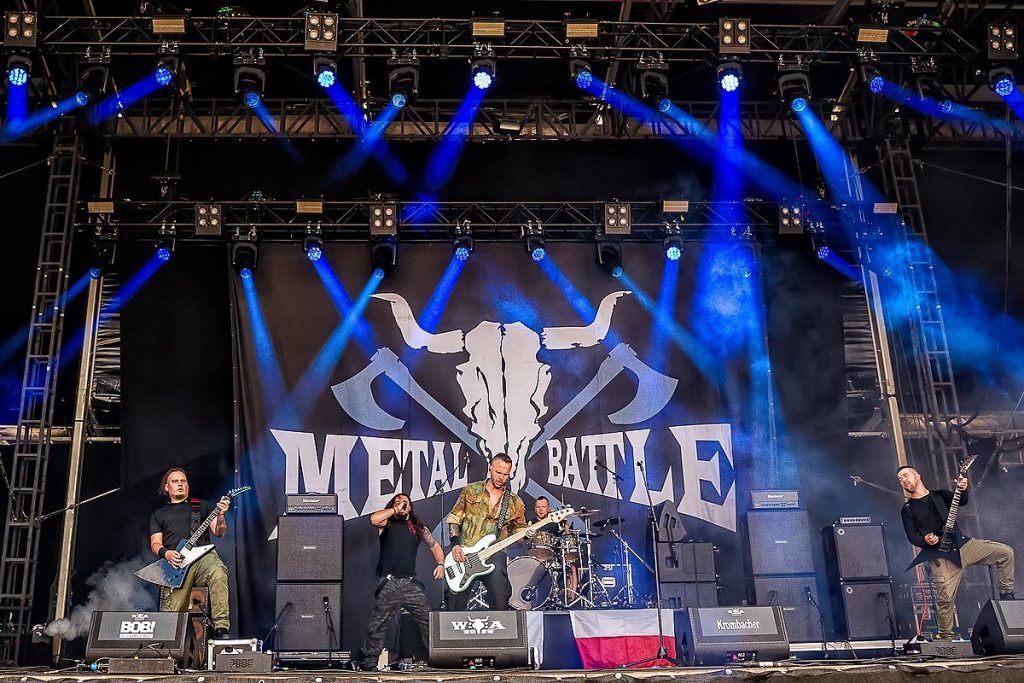
Stempel:
After the announcement, we knew we were going forward — but that brought two problems. First, there was me: I had a vacation planned for the time of the festival, so we had to decide whether to use a backup bassist or for me to change my plans. In the end, I managed to reschedule, but it involved complications — like dealing with friends we’d planned the trip with.
The second challenge was deciding whether to keep the same setlist from the Warsaw final or make changes. We weren’t sure what the organizational setup would be — would we have the same amount of time to play and set up, or would conditions be different? In Warsaw, we had 30 minutes total for gear change, soundcheck, and performance, so we worried it might be the same at Wacken.
We also discussed the performance format — how to run the show, what narrative to build with the audience, how to act on stage and during the entrance. Our main goal was to appear natural and show that we are a cohesive band, with a live set that’s polished and fully represents who we are.
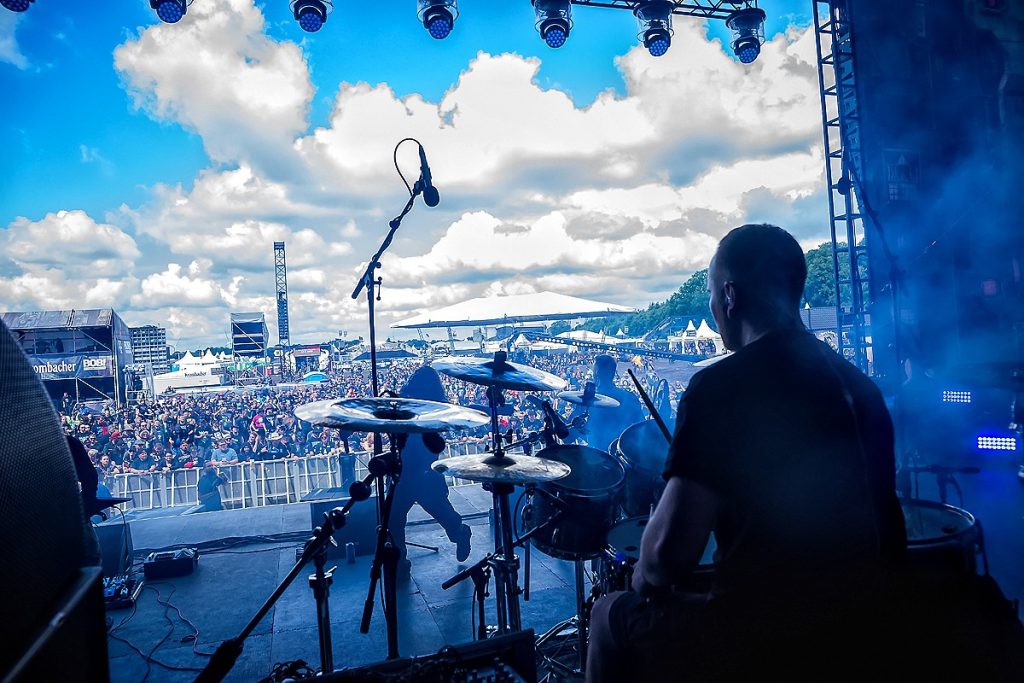
Sebastian:
The preparations for Wacken didn’t differ much from how we usually prepare for shows. However, the setlist wasn’t finalized right away. Only after learning the concert duration and on-site logistics could we lock it in. Ultimately, we chose to perform the exact same songs in the same order and format as in Warsaw, without any changes.
We did consider adding one extra song, because at Wacken we had a bit more time. As Stempel mentioned, in Warsaw we had 30 minutes total, while at Wacken we had an additional half-hour between bands, time for a line check, and 20 minutes of actual playtime, which made everything more comfortable. Still, we felt that adding another song might risk making things too tight. So instead, we used the extra time to engage more with the audience and enhance other elements of the show.
What surprised you the most at Wacken?
Sebastian & Stempel:
In one word — mud. And not just any mud! The kind that’s beyond imagination.
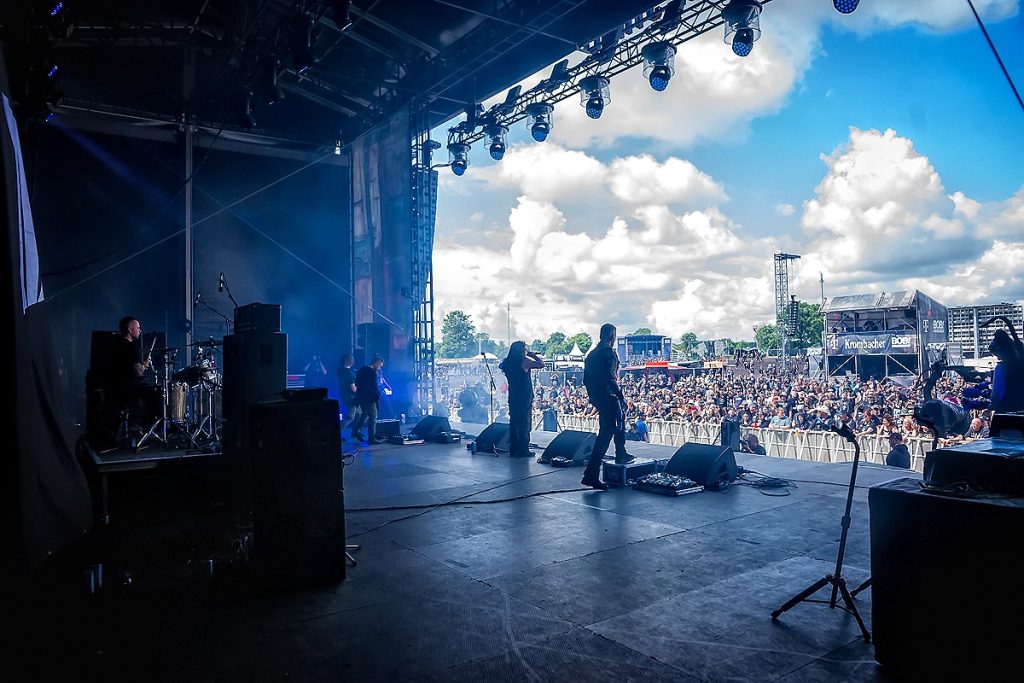
Stempel:
We had prepared for it somewhat — read forums, watched videos. We knew it rains there and gets muddy, but the reality exceeded all expectations. I genuinely didn’t expect anything like that. I’ll say more — I kept wondering right until the end whether to bring wellies, and the day before departure, I finally thought: okay, maybe there’ll be space in the van, I’ll take them. Better to have them than regret it — and that turned out to be a bullseye. So that was probably the biggest surprise.
Sebastian:
I completely agree. I was in the same situation. Friends who’d been before said, “Take wellies — if it rains, you’ll need them.” I thought, come on, wellies? So uncomfortable. I don’t even remember the last time I wore them — maybe as a kid. Luckily, our tech Marcin came to a rehearsal and handed me a spare pair, saying, “Here, take these.” I figured, why not — worst case, I won’t use them. They ended up being the most essential item after the guitar.
And what was the best part?
Sebastian:
For me — the performance itself. The energy from the crowd, the festival vibe — it was incredible.Stempel:
Absolutely. The actual performance, working with a professional stage crew, the excellent organization. Also, the lineup — for me, the surprise discovery was Papa Roach. I knew the band, of course, but didn’t expect that kind of energy on stage.
Has your participation in Wacken increased interest in the band?
Stempel:
Definitely. The numbers don’t lie — more listeners, more attention. But we know this is just the beginning. It’s all about how we follow up.
Sebastian:
It’s an opportunity, not a reward. You have to act on it, keep pushing forward, and strike while the iron’s hot.
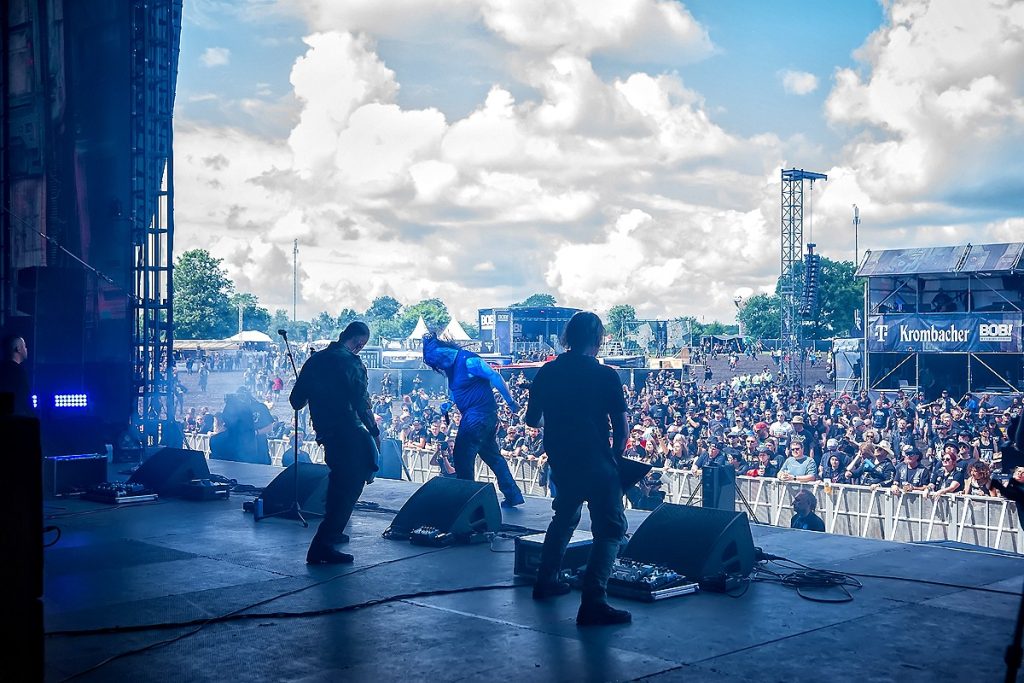
Did any of the other Wacken Metal Battle bands stand out to you?
Sebastian:
Hyla from the Netherlands — they played right after us. We listened from backstage — technically excellent, great sound.
Stempel:
I’ll add Mourning High from the U.S. and the guys from Venezuela — Vhill. We became friends, even though on the first day their vocalist was growling into our ears at 6 a.m. But he later apologized… with local Venezuelan rum and anise vodka. All forgiven!
Your latest album Dust and Bones and Oblivion was a breakthrough. Why?
Sebastian:
The album marks a kind of new beginning for us — you could even say a second debut. It’s our third album overall, but it came after a difficult period. After releasing our second album, the lineup changed drastically, and for a while, the band ceased to exist. Then Paweł and I took on the task of rebuilding the group, bringing in a new drummer and bassist.
The material was created with this new lineup and no time pressure — we wanted the album to be deliberate and polished. The writing process took 6–7 years, which is roughly the gap between our second and third albums.
Paweł and I work on riffs and initial song sketches, then we develop them together as a full band. Our vocalist, Lancz, has a lot of freedom when it comes to lyrics and vocal arrangements. We rarely interfere, except for small tweaks during recording sessions. Like our previous one, this is a concept album. It explores „Martian conspiracy theories” — cosmic stories of war, exile, and survival, all set in a sci-fi atmosphere. It imagines a theoretical past for Mars, assuming it was once inhabited. Listeners are invited to explore the story through the lyrics, ideally while immersed in the music.
Musically, we aimed to combine heavy and technical sounds with spacey, ambient elements. We don’t want our music to be just straight death metal blasting. We want it to carry emotional weight through dark melodies and ambient textures — a unique blend of death metal and post-metal.
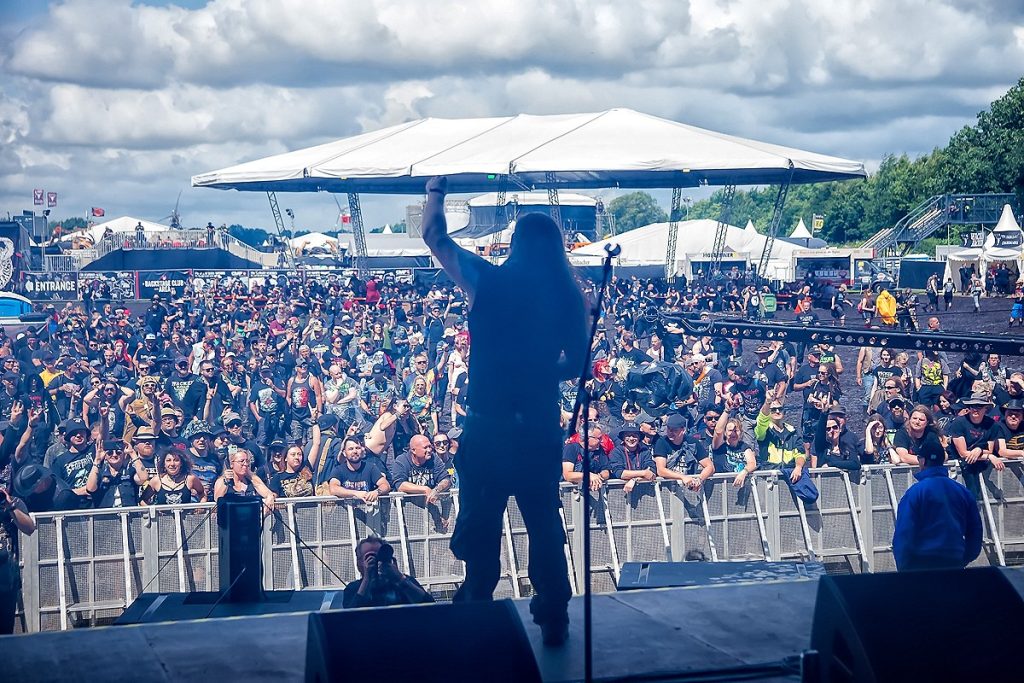
Stempel:
This album has a special place in my heart. I didn’t write or record the bass parts, but it was this very album that made me agree to join the band — as a bassist, even though I’m primarily a guitarist. I used to play in bands like J.D. Overdrive and Hasiok, mainly on guitar. I only picked up bass for home recordings.
When Sebastian reached out about joining Deadline, I initially declined — I didn’t even have proper bass gear, just some digital stuff for home use. He suggested I listen to the material and decide.
So, I waited. My impression of the first album wasn’t great. I thought the second was better — some good tracks we still play live. But it didn’t really move me.
Then Sebastian sent me Phobos Eclipse. I was astounded — it sounded like a different band entirely, on a much higher artistic level. After hearing the rest of the material, I agreed to take on the challenge. And now, it’s been almost four years.
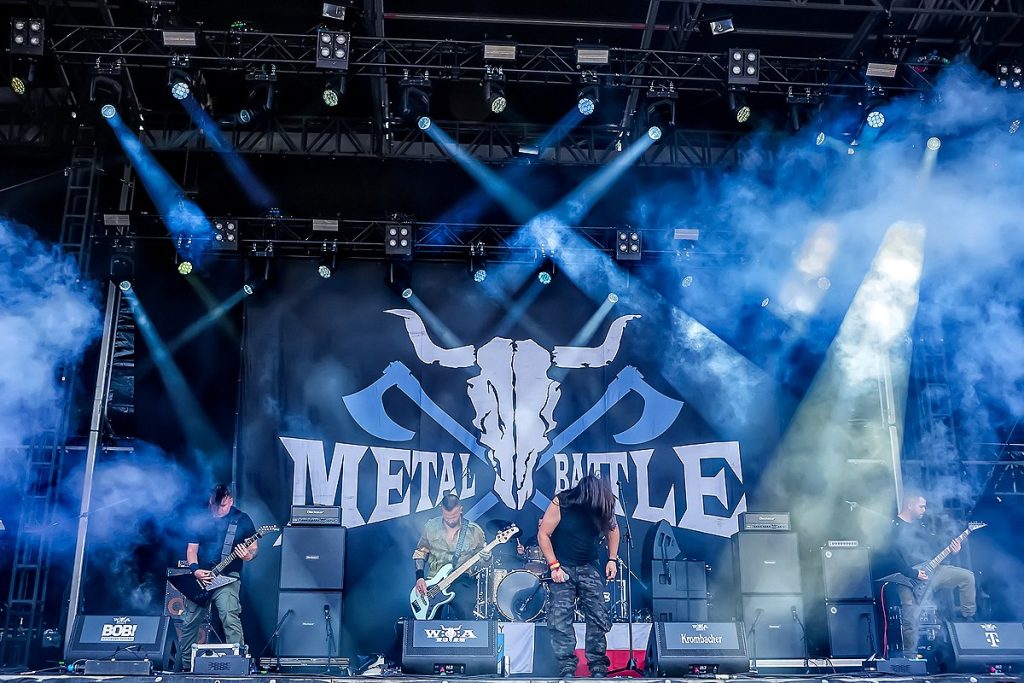
Are you working on new material?
Sebastian:
Yes, we’re working on it. Not super-fast — we’re picky, and life gets in the way. But we aim to finish the album this year and release it in 2026. Maybe a single will come out later this year — we’ll see.
Stempel:
After Wacken, we’ve got a new fire in us. We’ve rolled up our sleeves and we’re going all in.
Does being from Silesia influence your music?
Sebastian:
No. Definitely not. We draw inspiration from other sources — not really connected to where we live. I personally find a lot of inspiration in film soundtracks.Stempel:
Same here. What we play comes from our minds and tastes. We each have different influences, and they all blend together.
Speaking of which — Seba, who are your favorite film composers? And Stempel, who inspires you on bass?
Sebastian:
I don’t have a single favorite. I often Shazam interesting pieces in movies, save them on Spotify, and listen later. Some of those sounds make it into our ambient sections. As for guitarists — definitely Vogg from Decapitated and Josh Middleton from Sylosis. And, of course, James Hetfield back in the day.
Stempel:
One of the main reasons I bought a bass was to learn the bassline from Sledgehammer by Peter Gabriel. That song made me fall in love with Tony Levin’s playing — he’s one of my biggest musical idols and has contributed to so many great projects.
I also really admire what’s going on in Cory Wong’s music — far from metal, more funk and jazz. His former bassist, Sonny T, also known for working with Prince, brought incredible energy and a unique tone. Even though Cory now plays with someone else, their live show last year made a huge impression on me.
Among Polish bassists, I have to mention Mariusz Duda of Riverside. His tone and musical approach are both exceptional and inspiring.
Will we see you live anytime soon?Sebastian:
Not for now. We’re fully focused on the new material. Unless we get an offer, then we can’t refuse. First comes the album — then we’ll tour.
And finally — what would you say to bands wondering if Wacken Metal Battle is worth entering?
Stempel:
Absolutely. Even for experienced bands — this is a unique chance. No other contest gives you the opportunity to play at Wacken. Even if you don’t win, you’ll meet great people, test where you stand, and gain valuable experience.
Sebastian:
Exactly. It’s not just a competition — it’s a gateway to a big stage, and it can be a breakthrough. It was for us.
Deadline: Heaviness, Space, and Mars in the Background
If you haven’t checked out Deadline yet, now’s the time. Dust and Bones and Oblivion is a technical, ambient death metal with soul and its head in space, with lyrics exploring life on Mars — or perhaps the lack of it.